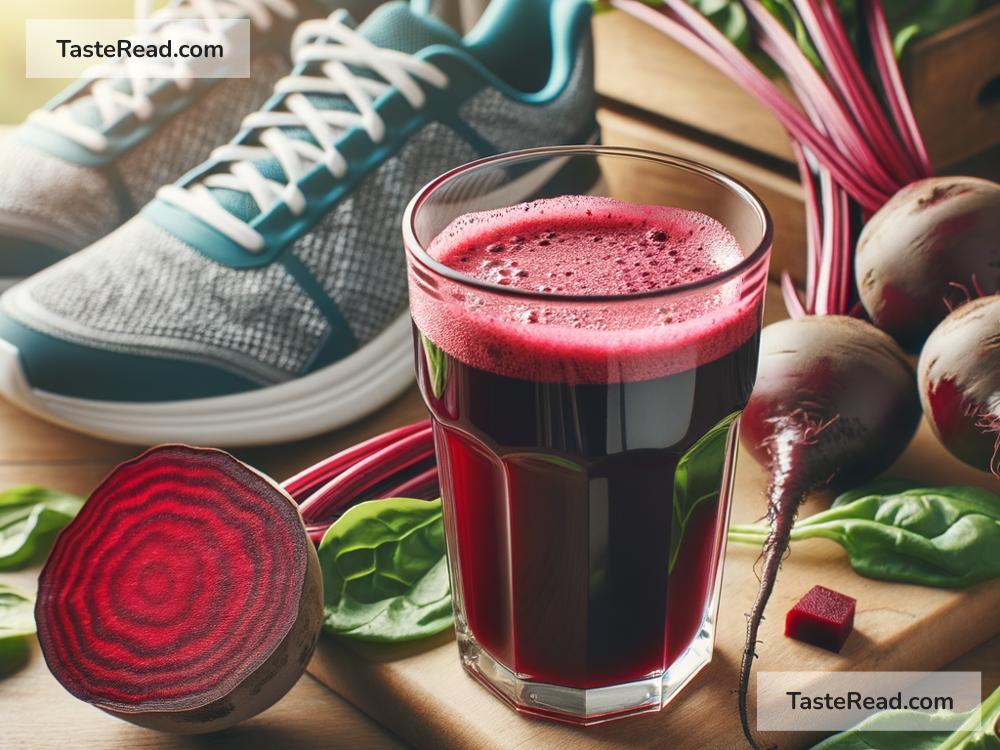Can Beets Improve Athletic Performance?
Athletes are always looking for ways to improve their performance, whether it’s running faster, lifting heavier weights, or achieving greater endurance. Surprisingly, one trend that has gained popularity in recent years is adding beets to the diet. Yes, those red, earthy vegetables you often see in salads or soups might hold the key to boosting your sports performance. But how exactly does this humble root vegetable help athletes, and is the hype backed by science? Let’s dive into the details.
What Makes Beets Special?
Beets contain high levels of inorganic nitrates, which are natural compounds found in certain vegetables. When you consume foods rich in nitrates, your body converts them into nitric oxide. Nitric oxide is a molecule that helps improve blood flow by relaxing and widening blood vessels, making it easier for your heart to pump blood and deliver oxygen to your muscles.
This process is especially important for athletic performance, as oxygen plays a crucial role in sustaining muscle activity. The more efficiently your body delivers oxygen to muscles, the better you can perform during physical activities like running, cycling, or swimming.
Benefits of Beets for Athletes
-
Improved Endurance
Studies suggest that consuming beets or beet juice may enhance endurance during exercise. For example, researchers have found that athletes who drank beet juice could perform aerobic activities (exercises that require oxygen, like running or cycling) for longer periods of time before feeling tired. This is because the nitric oxide from beets helps manage energy more efficiently, allowing muscles to work harder over a longer duration. -
Lower Oxygen Demand
When your muscles don’t need as much oxygen to work, you can exercise more effectively. Beet consumption appears to lower the oxygen cost of physical activity, meaning athletes can use less energy to maintain the same level of effort. This could be especially helpful for endurance athletes, such as marathon runners or cyclists, who rely on conserving energy during long events. -
Better Recovery Time
Exercise puts strain on your muscles and cardiovascular system, and recovery is a critical part of building strength and improving performance. Some studies suggest that beets may help speed up recovery time after exercise by supporting blood flow and reducing inflammation, meaning less soreness and faster repairs to muscle tissue. -
Enhanced Sprinting and High-Intensity Activities
Although the main benefits of beets are seen in endurance activities, there’s evidence they can also aid in high-intensity exercises. Improved blood flow and oxygen delivery can help athletes push through short bursts of intense effort, such as sprinting or lifting weights.
How to Add Beets to Your Diet
You don’t have to eat whole beets every day to enjoy their benefits. There are many ways to incorporate them into your diet. Here are some popular options:
- Beet Juice: Drinking beet juice is one of the easiest and most effective ways to consume nitrates. Many athletes drink beet juice in the hours leading up to their events or workouts to maximize the potential benefits.
- Roasted Beets: Cooked beets can be added to salads, grain bowls, or eaten as a side dish. They’re naturally sweet and pair well with other vegetables.
- Beet Smoothies: Blend beets with fruits like bananas, berries, or apples for a delicious and nutritious drink that also provides nitrates.
- Beet Powder: If you don’t like the taste of beets, you can try beet powder. This concentrated form of beets can be mixed into water, smoothies, or even sprinkled into meals.
Are There Any Side Effects?
Beets are generally safe to eat, but there are a few things to keep in mind. First, eating a lot of beets may cause your urine or stool to turn reddish—a harmless condition called beeturia. It might surprise you at first, but it’s completely normal!
Additionally, while nitrates are beneficial for improving athletic performance, excessive nitrate consumption could potentially lead to some health risks. It’s best to stick to natural sources like vegetables rather than relying on nitrate supplements. Finally, some people may not enjoy the earthy taste of beets, but experimenting with recipes can help you find a preparation method that works for you.
Do Beets Work for Everyone?
It’s important to note that results may vary from person to person. While many studies suggest that beets can improve athletic performance, factors like genetics, fitness level, and diet can influence how effectively your body converts nitrate to nitric oxide.
Also, while beets offer potential benefits, they aren’t a magical solution. Diet, hydration, training, and sleep all play important roles in athletic performance. Beets should be viewed as a helpful addition to a well-rounded routine rather than a standalone fix.
Conclusion
Beets have earned their spot as a trendy superfood among athletes thanks to their potential to improve endurance, reduce oxygen demand, and assist recovery. Backed by scientific research, incorporating beets or beet products into your diet may offer noticeable improvements in physical performance.
If you’re an athlete looking for a natural edge, why not give beets a try? Whether you blend them into smoothies, roast them for dinner, or sip on beet juice, these vibrant vegetables may help you push yourself further and achieve your fitness goals. It’s a simple, affordable, and healthy way to boost your performance—and who knows, beets might just become your new favorite pre-workout fuel!


